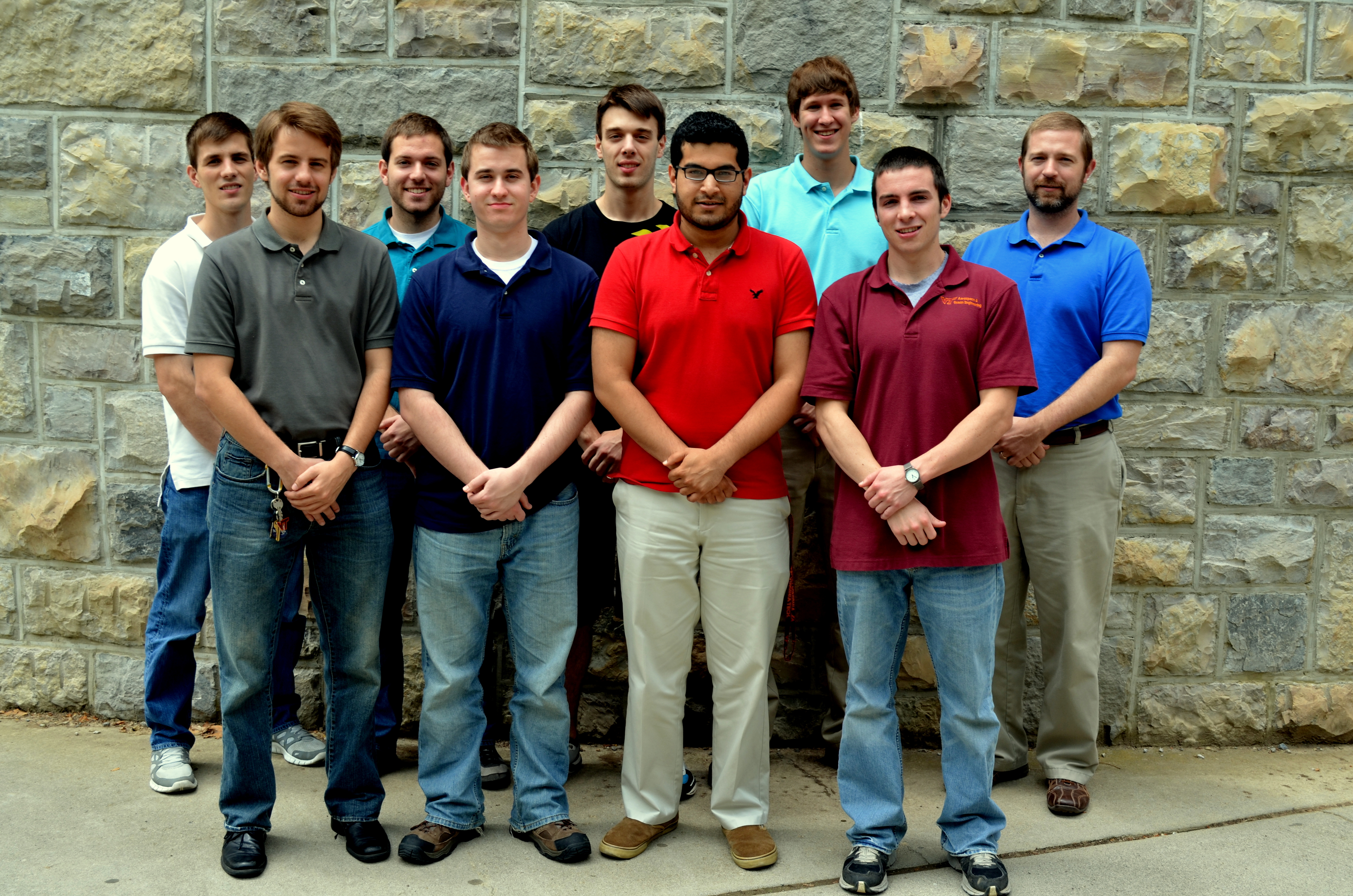Engineering students prepare for flight aboard NASA's 'Weightless Wonder'

Seven undergraduate and one graduate aerospace and ocean engineering students from Virginia Tech will venture to NASA Johnson Space Center's Ellington Field in Houston, Texas, in June to conduct experiments aboard the "Weightless Wonder" aircraft.
The students are:
- Jacob Bean of Mechanicsville, Va.;
- Tyler Campbell of Roanoke, Va.;
- Jared Hanzel of Sterling, Va.;
- Jacob McGee of Parrott, Va.;
- Robert Saunders of Bedford, Va.;
- Michael Simonetti of Blacksburg, Va.;
- Rehan Syed of Centreville, Va.; and
- graduate student Brad Atkins of Little Rock, Ark.
The Reduced Gravity Education Flight Program (RGEFP), nicknamed the "Weightless Wonder," gives undergraduate students the opportunity to propose, build, and fly experiments in reduced gravity.
The teams will perform the experiments aboard a microgravity aircraft that produces periods of weightlessness for up to 25 seconds at a time by executing a series of approximately 30 roller coaster-like parabolas over the Gulf of Mexico. During the free falls, the students will gather data in the unique environment that mimics space.
Virginia Tech team's opportunity to participate is based on scientific merit of their submitted proposal, one of more than 60 reviewed by NASA.
"They have put many hours into researching and building their novel experiment. They are also taking time to reach out to younger students and the community to share their unique experiences and discoveries," said Troy Henderson, assistant professor of aerospace and ocean engineering and faculty advisor to the team.
"We are excited that our program provides once-in-a-lifetime opportunities for aspiring scientists and engineers to study and understand their craft. The students gain useful skills by participating in the program through collaborative planning and teamwork," said Doug Goforth, RGEFP manager.
The Virginia Tech student team will arrive at Ellington Field, where astronauts do their T-38 training, on June 8. They will undergo thorough physiological training and fly their experiment within a week of their arrival.
Their experiment will demonstrate the viability of using linear moving mass actuators for future satellite and re-entry vehicle attitude control systems. It is an effect that is similar to ice skaters moving their arms and changing their spin rate. At this moment, there is no published experimental data for a pure moving mass control-based attitude control system in zero gravity. Following their flight, the team will evaluate findings, draw conclusions and provide the results to NASA.
For more information about the Reduced Gravity Education Flight Program, contact Rachel Kraft at NASA Johnson Space Center's Public Affairs Office by calling 281-792-7690.



